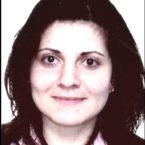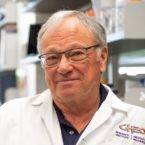Muscular dystrophies are a group of diseases that cause weakness and degeneration of the skeletal muscles. At the CHEO Research Institute, much of our research is focused on Duchenne Muscular Dystrophy (DMD), one of nine types of muscular dystrophy. DMD is a genetic disorder characterized by progressive muscle degeneration and weakness. DMD is caused by an absence of dystrophin, a protein that helps keep muscle cells intact. The disease primarily affects boys and in rare cases can affect girls. The past decade has seen tremendous advances in the diagnosis and treatment of DMD. These advances have led to an improved outlook for those living with the condition, translating into heightened optimism within the DMD community.
Related News
Research Projects
-
Risk factors associated with prevalent vertebral fractures in Duchenne muscular dystrophy
07/11/2022
Readily measurable clinical variables were associated with prevalent VF in males with glucocorticoid-treated DMD. These variables may be useful to identify candidates for primary osteoporosis prevention after glucocorticoid initiation.
-
Sex-dependent role of Pannexin 1 in regulating skeletal muscle and satellite cell function
08/08/2022
-
Advances in Bone Assessment Methods in Children
02/11/2020
INTRODUCTION Pediatric bone diseases present with a variety of signs and symptoms. Although some diagnoses may be straightforward based on history and physical examination, other presentations require more extensive bone assessments. In addition, clinical followup, research studies, and drug trials are predicated on strong bone health assessment.
-
Utility and practice of electrodiagnostic testing in the pediatric population: An AANEM consensus statement
02/11/2019
The panel found that electrodiagnostic studies continue to have high utility for the diagnosis of numerous childhood neuromuscular disorders, and that standardized approaches along with the use of high‐quality reference values are important to maximize the diagnostic yield of these tests in infants, children, and adolescents.
-
Viable versus nonviable positive margins in Ewing sarcoma and associated recurrence rates: A systematic review
15/10/2019
This is an area where there is a paucity of evidence that needs to be rectified to ensure that ES patients are provided the highest quality of evidence-based care.
-
Salbutamol modifies the neuromuscular junction in a mouse model of ColQ myasthenic syndrome
04/07/2019
Motor neurons contact their target muscle fibres at highly specialised chemical synapses, neuromuscular junctions (NMJ).
-
Burosumab versus conventional therapy in children with X-linked hypophosphataemia: a randomised, active-controlled, open-label, phase 3 trial
15/06/2019
Significantly greater clinical improvements were shown in rickets severity, growth, and biochemistries among children with X-linked hypophosphataemia treated with burosumab compared with those continuing conventional therapy.
-
Expression of Pannexin 1 and Pannexin 3 during skeletal muscle development, regeneration, and Duchenne muscular dystrophy.
10/05/2018
These findings suggest that Panx1 and Panx3 channels may play important and distinct roles in healthy and diseased skeletal muscles.
-
Long-Term Effects of Lung Volume Recruitment on Maximal Inspiratory Capacity and Vital Capacity in Duchenne Muscular Dystrophy
08/07/2015
With lung volume recruitment therapy, MIC–VC differences were stable over time, indicating that respiratory system compliance remains stable, despite a loss in VC, in individuals with Duchenne muscular dystrophy.
-
Targeted therapies for congenital myasthenic syndromes: systematic review and steps towards a treatabolome
We assess the strength and quality of the evidence and create a dataset that provides the foundation for a computer-aided system to enable clinicians to gain easier access to information about treatable variants and the evidence they need to consider.
Researchers
-
Kyle Cowan
Scientist, CHEO Research Institute
-
Dina El Demellawy
Investigator, CHEO Research Institute
-
Refika Ersu
Investigator, CHEO Research Institute
-
Sherri Katz
Senior Scientist, CHEO Research Institute
-
Robert Korneluk
Senior Scientist, CHEO Research Institute
-
Eric LaCasse
Associate Scientist, CHEO Research Institute
-
Hanns Lochmüller
Senior Scientist, CHEO Research Institute
-
Alex MacKenzie
Senior Scientist, CHEO Research Institute
-
Hugh McMillan
Investigator, CHEO Research Institute
-
Marie-Eve Robinson
Investigator, CHEO Research Institute
-
Kevin Smit
Investigator, CHEO Research Institute
-
Leanne Ward
Senior Scientist, CHEO Research Institute
-
Jodi Warman
Scientist, CHEO Research Institute
-
Amanda Yaworski
Investigator, CHEO Research Institute

















